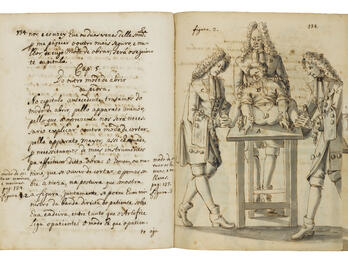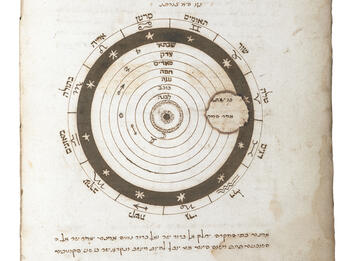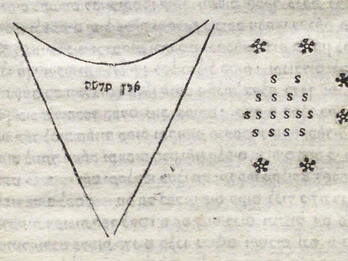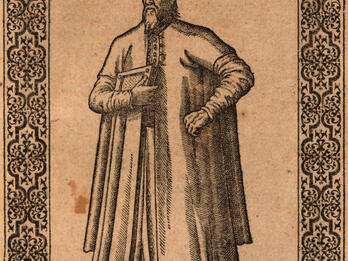Dialoghi d’amore (Dialogues of Love)
Judah Abravanel
ca. 1512
Third Dialogue: On the Origin of Love
[ . . . ] Philo: I have already told you that the cognition of the generating nature is meant to direct them towards their natural perfection, without any other cognition on their own part, so that their love and desire is neither intellectual nor sentient, but only natural, which means that it is governed by…
Creator Bio
Judah Abravanel
A philosopher, physician, and poet, Judah Abravanel (Leone Ebreo) was the son of Isaac Abravanel. Born in Lisbon, Judah fled with his family in 1483, after his father, who had been treasurer to the king of Portugal, was accused of treason. In Spain, Judah served as court physician to the Catholic Monarchs. He returned to Portugal with his family after the expulsion in 1492. Three years later his son Isaac, along with other Jewish children, was seized and baptized according to the order of King Manuel. Judah Abravanel left Portugal in 1496 after the decree of expulsion and reached Naples, where he served as court physician to the kings of the Aragon dynasty and became acquainted with a circle of humanists who were active there and shared his interest in classics and Neoplatonic philosophy. In 1501, he moved to Genoa, where he began to write the Dialoghi d’amore (Dialogues of Love), generally understood to have been completed around 1512 when he was living in Venice; the book was published posthumously in 1535.
Related Guide
Early Modern Trade and Mercantilism
International trade drove Jewish mobility during the age of mercantilism, as Jewish merchants formed wide commercial networks and partnerships and developed cosmopolitan attitudes that facilitated civic inclusion.
Related Guide
Early Modern Italy: Where East and West Meet
Ashkenazim, Sephardim, and Marranos encountered each other in Italian cities, developing community structures that later influenced Jewish communal organization throughout the western world.
Related Guide
Education and Scholarship
The early modern period featured educational reforms, anti-Christian polemics, and growing Jewish university participation.
You may also like

Surgical Illustration

Astronomical Illustration

Orḥot ‘olam (Paths of the World)
Responsum: On Philosophy
Responsum: On Philosophy



